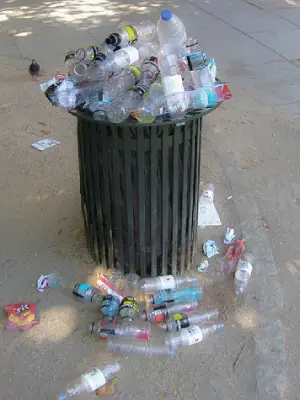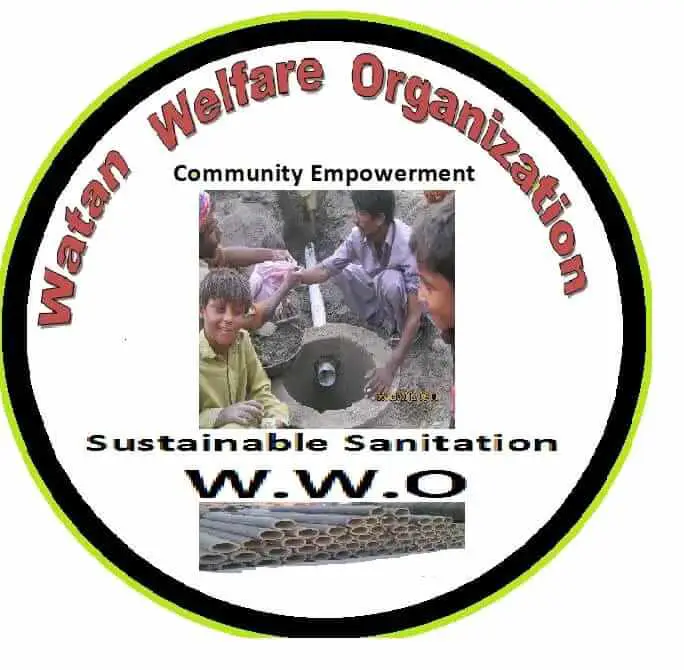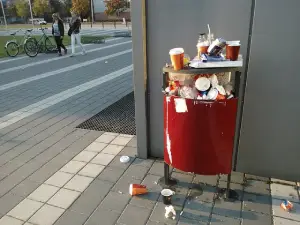RECYLING DAY
RECYCLING DAY CELEBRATION IN PAKISTAN ON 18 MARCH 2023
An integrated approach to preventing disease, recycling waste, and protecting against waterborne diseases
World Recycling Day is an annual event celebrated on March 18th in Pakistan to promote the importance of reusing waste , trash ,garbage and encourage people, communities, and public sector,NGO,government agencies ,employees and philanthropists to take action toward reducing waste and conserving resources to save our planet

The day is aimed at raising awareness about the impact of waste on the environment and highlighting the benefits of recycling in reducing pollution and preserving natural resources.
On this day, various activities and events are organized in Pakistan and globally, such as recycling drives, awareness campaigns, and workshops
To encourage people to recycle more and adopt sustainable practices, apply hygiene practices in homes and collect the waste in separate bags for upcycling purposes.
World Recycle Day 2023 is expected to be a crucial milestone in the global efforts to make aware the general masses and build a more sustainable future for all.
Recycling Day in Pakistan: Addressing the Global Issue:
Waste generation has become a global issue, especially in developing countries. It has led to various environmental pollution issues, including air pollution, water pollution, and soil contamination.
One of the significant challenges posed by waste is its impact on public health. When waste is not appropriately managed, it can become a breeding ground for disease-causing pathogens. Additionally, improper waste disposal leads to the contamination of water sources, which can lead to waterborne diseases.
Pakistan urgently requires the implementation of a robust recycling system and a heightened level of awareness to effectively tackle the challenges at hand.
The inefficiencies within the municipal committees responsible for waste management have led to severe repercussions, including detrimental effects on public health and the misappropriation of allocated budgets.
The mismanagement of recyclable material collection has resulted in inadequate processing and disposal methods, exacerbating environmental concerns.
Furthermore,on this recyling day , the alarming issue of embezzlement by town officers and committee chairmen should be highlighted. These individuals have shamelessly diverted funds intended for recycling initiatives to their personal accounts.
To perpetuate this corruption, they have resorted to establishing fraudulent companies that serve as conduits for siphoning off funds.
To address these issues, it is crucial to incorporate online tender processes and robust monitoring mechanisms within the waste management department. Online tendering will enhance transparency, promote fair competition, and deter corrupt practices.
Monitoring systems will ensure that allocated funds are utilized appropriately and that recycling efforts are effectively implemented.
By integrating online tendering and monitoring systems, Pakistan can not only combat corruption but also establish a more accountable and efficient waste management infrastructure.
This approach will promote the responsible use of resources, protect public health, and contribute to a sustainable future for the country.
The Relationship Between Waste and Disease
Waste provides an ideal breeding ground for disease-causing pathogens such as bacteria, viruses, and parasites. These pathogens can thrive in poorly managed waste, leading to the spread of diseases.
For instance, improper disposal of human waste can lead to the spread of diseases such as cholera, typhoid, and dysentery. Poorly managed solid waste can also lead to the spread of diseases such as dengue fever and malaria through the breeding of mosquitoes.
Moreover, waste management workers are at high risk of contracting diseases from the waste they handle. In developing countries, waste management workers often work without protective gear, exposing them to various health risks such as respiratory illnesses, skin infections, and gastrointestinal diseases.
Therefore, proper waste management is critical in preventing the spread of diseases. Waste should be appropriately collected, transported, and disposed of to reduce the risk of contamination and for the safety of working personnels .
Waterborne Diseases and the Role of Waste Management
Water is essential for human survival, but it can also be a source of disease if contaminated. Waterborne diseases are caused by microorganisms that thrive in contaminated water. These microorganisms can cause illnesses such as cholera, typhoid, and hepatitis A.
One of the significant contributors to water contamination is the improper disposal of waste. When waste is dumped in or near water sources, it can seep into the water and contaminate it. Moreover, when waste is not appropriately disposed of, it can attract pests such as rats and flies that can carry disease-causing pathogens to water sources.
Therefore, proper waste management is critical in preventing waterborne diseases. Waste should be disposed of in a way that does not contaminate water sources. Additionally, waste should be disposed of in a way that does not attract pests that can carry diseases to water sources.
Recycling and Waste Management
Recycling is an essential component of waste management. Recycling involves the collection and processing of waste materials ,paper ,plastic, glass,electronic waste,metal,food products to create new products.
Recycling helps to reduce the amount of waste that ends up in landfills, reducing the risk of environmental issues of pollution and the spread of diseases. Moreover, recycling reduces the need for raw materials, which helps save our resources
For instance, recycling paper reduces the need for trees to be cut down, reducing deforestation. Recycling gives us new products for instance;
- Paper – Paper products such as books, newspapers, magazines, cardboard, expired items, office stationery, and office paper can be recycled to make new paper products. The recycling process involves breaking down the old paper into pulp, removing any contaminants, and then reforming it into new paper products.
- Plastic – Plastic bottles, containers, bags, and packaging materials can be recycled to make new plastic products.
- Glass – Glass bottles and jars can be recycled to make new glass products.
- Metal – Aluminum cans, steel cans, and other metal products can be recycled to make new metal products.
- Electronic waste – Electronic products such as computers, phones, and other devices can be recycled to recover valuable metals and reduce the environmental impact of electronic waste thus saving the raw material costs that cause inflation and hike in prices
- Textiles – Clothing, linens, and other textiles can be recycled to make new textile products.
- Organic waste – Food scraps, yard waste, and other organic materials can be composted to create nutrient-rich soil for gardening and farming and thus we can save the cost of fertilizers. The benefit of recycling is that we can generate organic matter which is best for the environment and public health because it is with chemicals that pose a threat to human life and cause chronic diseases.
Recycling and Disease Prevention
Recycling also plays a critical role in disease prevention. When waste is recycled, it reduces the amount of waste that ends up in landfills, reducing the risk of contamination by disease-causing pathogens. Additionally, recycling reduces the amount of waste that is burned, reducing air pollution and the risk of respiratory diseases.
Moreover, recycling helps to conserve natural resources, reducing the need for new resources to be extracted. This, in turn, reduces the pollution caused by the extraction of natural resources, reducing the risk of respiratory diseases

